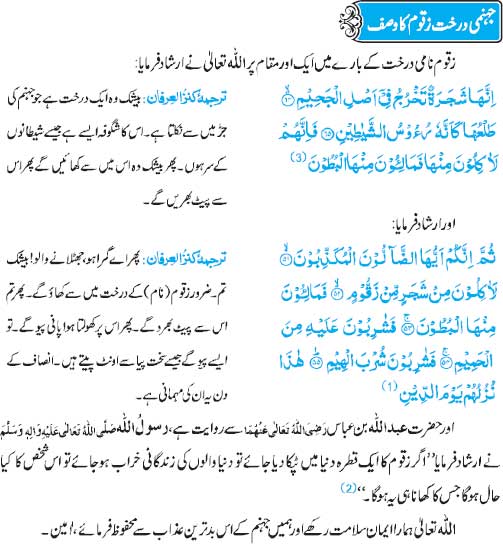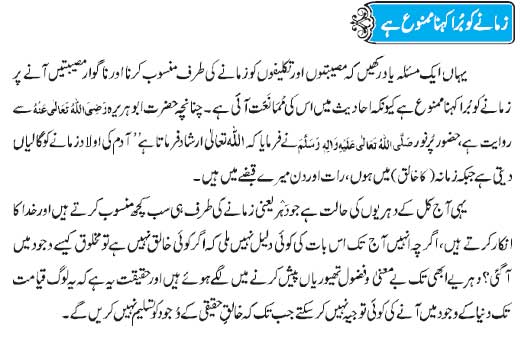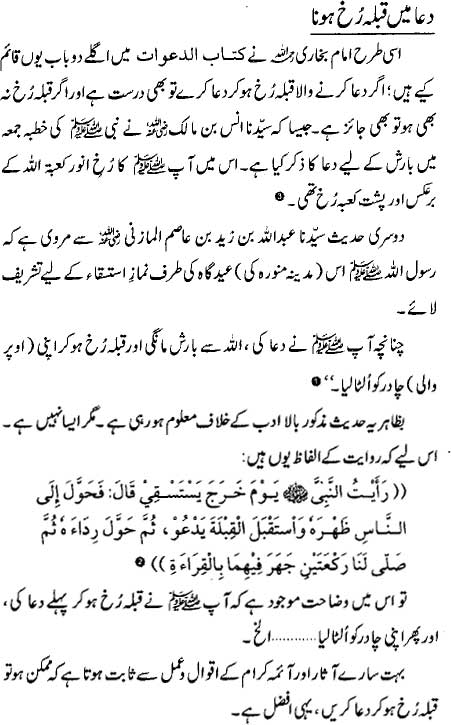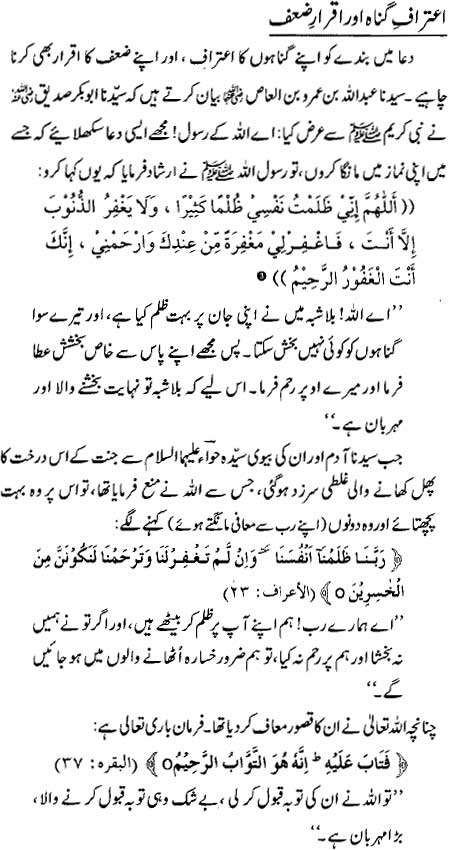
The Call For Prayer: Azaan
Yahya narrated it on the authority of his uncle that he had been sitting in the company of Muawiya bin Abu Sufyan (may Allah be well pleased with them) when the ‘Muazzin’ called (Muslims) to Prayer. Muawiya said: I heard the Messenger of Allah (PBUH) saying “Muazzin’s will have the longest necks on the Day of Resurrection. (They will be the more deserving of Allah’s mercy and reward) (Sunan Abu Dawood)
The Holy Prophet (PBUH) has said: “Whoever proclaims the “Azaan” for 7 years, for the sake of reward, Allah keeps him secure from the fire of hell.” (Tirmizi, Ibn Majah)
The Holy Prophet (PBUH) has said: “The one who proclaims the “Azaan” only seeking reward, is like the blood-stained martyr – and when he dies, his body will be safe from insects.” (Bahaare Shariat from Tibrani)
It is an Emphasised Sunnah (Muakkadah) to proclaim the “Azaan” for offering Obligatory Prayers in the mosque. This command is like an Essential (Wajib) in the sense that if the “Azaan’ is not proclaimed, the entire community residing there will be offenders. It is undesirable (Makrooh) to proclaim the ‘Azaan’ without ablution. The ‘Azaan’ for each Obligatory Prayer can be proclaimed after the time starts for each respective Prayer. An ‘Azaan’ proclaimed prior to its time must be repeated in its due time.
Islamic Law (Shariah) has some specific words for the ‘Azaan’ (the Call for Prayer), which are as follows:
Allahu Akbar: Allahu Akbar: Allahu Akbar : Allahu Akbar
Ash-hadu al-laa ilaaha illAllah: Ash-hadu al-laa ilaaha illAllah
Ash-hadu anna Muhammadar-Rasoolullah: Ash-hadu anna Muhammadar-Rasoolullah
Hayya alas-Salaah: Hayya alas-Salaah
Hayya alal-Falaah: Hayya alal-Falaah
Allahu Akbar: Allahu Akbar
Laa ilaaha illAllah
Allah is the Greatest, Allah is the Greatest, Allah is the Greatest, Allah is the Greatest
I bear witness that there is no God except Allah, I bear witness that there is no God except Allah
I bear witness that Mohammed is the Messenger of Allah, I bear witness that Mohammed is the Messenger of Allah
Come towards Prayer, come towards Prayer; Come towards Success, come towards Success
Allah is the Greatest, Allah is the Greatest; there is no God except Allah!!
While saying “Hayya alas-Salaah Hayya alal-Falaah” in the ‘Azaan’ or in the ‘Iqamah’, one must face right and left respectively. Upon hearing the ‘Azaan’, it is commanded to reply to it – i.e. to repeat the words which the Caller (Muazzin) is saying, except for the words ‘Hayya alas-Salaah Hayya alal-Falaah’, for which one must say “Laa hawla wa laa quwwata illaa Billah” (There is neither power nor strength, except with Allah).
In the ‘Azaan’ for the Dawn Prayer, the Caller must say the following words twice after “Hayya alas-Salaah Hayya alal-Falaah” – “AsSalaatu Khairum-minun-Naum” (Prayer is better than sleep). The response to these words is “Sadaqta wa bararta, wa bilHaqqi Nataqta” (You have confirmed the truth and you did well – and you have spoken a fact.)
While the ‘Azaan’ is being said, one must not indulge in any talk, recite Quran, etc., nor indulge in other activities. Listen to the Azaan attentively and reply to it. The same applies to the Iqamah. For the one who stays engrossed in talk while the ‘Azaan’ is being proclaimed, there is a danger of him dying an evil death. (We seek Allah’s refuge)
When the Caller proclaims “Ash-hadu anna Muhammadar-Rasoolullah”, one must respond by sending peace and blessings upon the Holy Prophet – “SallAllahu alayka yaa Rasool Allah” (Allah’s blessings be upon you, O the Messenger of Allah).
The words proclaimed to announce the beginning of the congregational Prayers (with Jamaat), are called “Iqamah’. All words are the same as in the “Azaan’, except that after the second “Hayya alal-Falaah”, the following words are said twice – “Qad QamatisSalaah” (The Prayer has been established). In response to this, one should say “AqamahAllah wa adamaha maa damatiSamawate walArd” (May Allah keep it established, and grant it permanence as long as the skies and the earth remain.)
It is undesirable (Makrooh) for a person who comes in at the time of “Iqamah” to remain standing and wait – he should sit down and stand up only when the Proclaimer (Mukabbir) has announced “Hayya alal-Falaah”. Likewise those who are already present in the mosque must stand up at this moment. The same applies to the Imaam.
If several Azaans are heard, the listener must reply to the first one, and it is better if he replies to all. The ‘Azaan’ for the Sermon (Khutbah) must not be replied to by those who pray behind the ‘Imaam’ in the congregation. (The follower is called Muqtadi).
After the Azaan, one must send blessings upon the Holy Prophet (PBUH) and then supplicate as follows:
Allahumma rabba haazihi-daawatit-taammate was-salaatil-qaaemate aate sayyedenaa Muhammadan-ilWaseelata walFadeelata wad-darajatar-rafeeata wabas-hoo maqaamam-mahmoodanil-lazee wa-attahoo warzuqnaa shafaatahoo yawm-alqiyaamate, innaka laa tukhleful-meeaaad.
(O Allah, the Lord of this perfect call and of the Prayer to be established !! Grant our leader Hazrat Mohammed, the highest point in Paradise, and Excellence, and the highest rank, and install him on the praiseworthy position which You have promised him – and grant us his intercession on the Day of Resurrection. Indeed You do not go against Your promise.)
Zamanay Ko Bura Kehna Mamno Ha

Tayammum (Purification With Soil)
The time for Tayammum (When can one do Tayammum ?)
A person in need of bathing or ablution must do “Tayammum” if he is incapable of using water. Some important conditions of performing “Tayammum” are as follows:
There should be no sign (or knowledge) of water being available for a distance of at least one mile, in all the four directions.
An illness that would get severely aggravated or get prolonged upon using water. This could be the person’s own judgment from experience or the opinion of a pious reliable doctor.
The extreme cold which could cause the person to die or fall ill if he takes a bath, and no warm blankets are available to keep out the cold after bathing.
The danger of missing the train or bus etc., if he alights from it in order to use water.
Danger of missing the Fajr (Dawn) Prayer or the congregational Prayers of Eid.
Method and some important rules regarding Tayammum
Three things are obligatory in “Tayammum”
- Making an intention (Niyah) that the particular “Tayammum” is for ablution or for bath or for both.
- Passing soiled palms over the entire face, not leaving out a single spot equal to the breadth of a hair.
- Passing soiled palms over both arms up to and including the elbows, not leaving out a single spot equal to the breadth of a hair.
At first, make an intention and after reciting “Bismillah Shareef”, strike the hands on any solid matter which is related to the earth i.e. soil, mud, stones, marble, or any such thing upon which is considerable dust. If the hands get soiled with too much dust, strike the base of one thumb upon the base of the other to loosen it. Then pass both hands over the entire face, not leaving out even a single spot equal to the breadth of a hair. The area around the lips which remains exposed in the natural state when the mouth is closed should also be covered in this “Masah”. If the person is bearded, he should then run his fingers through the beard.
Strike the hands again on the soil. Now perform “Masah” of the right arm, by placing the inner portion of all fingers, except the thumb, on the outer portion of the right arm. Pass the left-hand fingers over the fingertips of the right arm up to the elbow. Coming back from the elbow pass the palm over the inner side of the right arm up to the wrist. Then do “Masah” of the right thumb using the inner side of the left thumb. Similarly, repeat the entire process for the left arm.
While striking the palms on the soil or mud, the fingers must be kept open. If dust has reached between the fingers, “Khilaal” should be done (by rubbing other fingers between them). If the palm had been struck on stone or other such things by which dust does not reach between the fingers, then ‘Khilaal’ becomes obligatory.
Women should take extra care during “Tayammum” by moving ornaments (such as rings) in order not to leave the area below them – whereas nail polish should be totally removed.
If cold water is harmful to sickness, warm water should be used if available. If warm water is unavailable, “Tayammum” should be done.
If any portion is covered by a bandage (or plaster) because of an injury, then “Masah” with wet hands should be done over such bandage – and the rest of the body washed as usual with water. If pouring water does not cause harm, water should be poured over such a bandage. In due course, if it is not harmful to do “Masah” over the injured part, “Masah” should be adopted immediately. Later when washing the injured portion will not cause harm, it will become obligatory to wash it. It should therefore be understood that when the ability exists, the superior act must be performed and the lesser act will no more suffice.
If very little time is left for offering Prayer, and it is feared that the time will lapse if one takes a bath or performs ablution, one must perform the “Tayammum” and offer the Prayer. It is however incumbent to repeat such Prayer after proper bathing or ablution.
If the excuse due to which “Tayammum” was done does not remain anymore, it will make the “Tayammum” invalid. The occurrence of anything that breaks the ablution will also break the “Tayammum” which was done in place of ablution. Similarly the occurrence of anything which makes bathing compulsory will break the “Tayammum” which was done in place of bathing.
Dua Kay Liay Qibla Rukh Hona

Bathing (Ghusl) Rules In Islam
The 3 obligations on bathing (Ghusl)
Gargling: Water must reach right from the lips up to the base of the throat.
Inhaling water up to the nose bone: Water must reach through both nostrils and wet the entire area, up to the nose bone.
Washing the entire body in such a manner that water flows over every part of the body, not leaving dry any spot equal to the breadth of a hair.
If any food particles are stuck in the teeth, these must be removed. Likewise, the nose must be cleaned from any dust stuck inside it, and then the nose washed with water up to the beginning of the nose bone. However, care must be exercised during fasting so as not to overdo it.
Bathing (Ghusl) according to Sunnah
Make an intention (Niyah) for bathing and at first wash both hands up to and including the wrists. Then wash the excretory organs even if there is no impurity. Then cleanse the body area that has any impurity and perform the ablution, without washing the feet. If you have a bath on a stand (high area), you may wash the feet. Next, rub water (like applying oil) on the body to wet it. Then pour water thrice over the right shoulder followed by thrice over the left shoulder. After this, pour water over the head thrice and then thrice properly over the entire body. Rub the hands over the entire body to ensure that no spot equal to the breadth of a hair remains dry. If the feet had not been washed at ablution, wash them after moving away from the bathing spot.
While bathing takes care that you should not be facing the ‘Qiblah’, nor speak nor recite any supplications. Also, bathe in a place where there is no exposure.
Things that make bathing compulsory
- Discharge of semen in a state of sexual excitement.
- Ejaculation while asleep.
- Intercourse with either sex, whether semen is discharged or not.
- Woman completing her menses.
- Stoppage of impurity for a woman after childbirth (or miscarriage etc.).
Aitraaf Gunnah Aur Iqrar e Zoaf

Things That Break (Nullify) Ablution (Wuzu)
The following acts (or incidents) break the ablution:
- Excretion of any matter from the frontal or posterior excretory organs.
- Vomiting in mouthful quantity.
- Discharge of blood, pus, or yellowish liquid from the body – which makes the discharge flow.
- Sleeping while taking support from any object.
- The flow of water from an infected eye.
- Laughing out loud whilst in Prayer.
- Loss of consciousness, or onset of insanity.
Betion Ki Qadr Kerien

Method Of Performing Ablution (Wuzu)
Make an intention (Niyah) for obeying Allah and for gaining reward, and after reciting “Bismillah Shareef”, wash both hands up to the wrists. Then brush the teeth with “Miswaak”. Hold the “Miswaak” in your right hand – little finger at the bottom, three middle fingers at the center, and the thumb at the top bottom side of the “Miswaak”. Begin with the right upper teeth, followed by the left upper teeth. Then brush the right lower teeth followed by the left lower teeth. Brushing should be in horizontal movements.
Then taking water from the cup the hand, rinse the mouth thrice. Then inhale water into the nose thrice and clean the nose with the little finger of the left hand.
Then wash the entire face – that is from the top of the forehead (where the hair begins) to the bottom of the chin and from ear to ear, without leaving any spot equal to the breadth of a hair unwashed. If the person is bearded, he should then run his fingers through the beard.
After this, wash both hands, up to and including the elbows (right hand first, followed by the left).
Then wet both hands and perform “Masah” of the entire head, as follows: Join the tips of the three fingers of both hands (i.e. other than the thumb and the little finger), and keeping them on the forehead pass them over the entire head till the nape of the neck, while keeping the palms away from the head. Pass the palms over the nape of the neck and bring them forward. Then use the upper phalanx of the index finger to rub the inner part of the ears and the thumb for the back of the ears. Then use the back of the fingers to do “Masah” on the sides of the neck.
Then wash both feet up to and including the ankles, beginning with the right foot. Use the left hand for washing the feet. Insert the left hand’s little finger between the spaces of all toes, starting from the small toe (moving right to left) in case of the right foot, and starting from the big toe (moving right to left) in case of the left foot.
Upon completing ablution, make it a habit of reciting the “Kalemah Shahadat” (The words of bearing witness) as in the Hadith, there are glad tidings of paradise for such a person.

